Navigating mental health can be a daunting journey, but having the right support can make all the difference. This letter template serves as a vital tool for healthcare providers to refer patients to mental health professionals, ensuring they receive the specialized care they need. By clearly outlining the patient's situation and specific requirements, we can streamline the referral process and enhance communication between care teams. Ready to explore how to draft the perfect referral letter? Let's dive in!
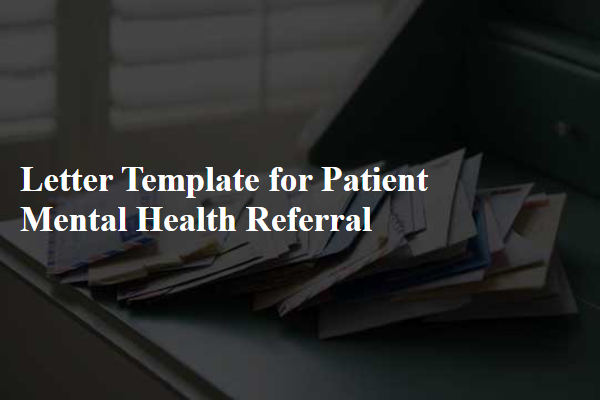
Patient Information
Patient information is crucial in mental health referrals, encompassing vital details for comprehensive evaluation. Key identifiers include the patient's full name (John Doe), date of birth (January 15, 1985), and contact information (555-0123), ensuring efficient communication between healthcare providers. Medical history highlights previous diagnoses (Major Depressive Disorder, diagnosed in 2020), current medications (Sertraline 100 mg), and any past hospitalizations (Springfield General Hospital, March 2021). Additionally, relevant social factors such as employment status (unemployed since 2022), living situation (with parents), and support systems (one sibling, Sarah) offer a well-rounded view of the patient's context. Accurate documentation of symptoms, like persistent sadness and anxiety, alongside any reported triggers, provides essential insights to the receiving mental health professional for tailored therapeutic interventions.
Reason for Referral
Reason for referral often includes symptoms indicating a need for specialized mental health intervention, such as persistent anxiety disorders, severe depression, or emotional distress. A patient may experience significant changes in behavior, including withdrawal from social interactions or a decline in academic or work performance. Symptoms may also encompass difficulty concentrating, intrusive thoughts, or sleep disturbances, each of which can significantly impair daily functioning. Referral may be necessary for comprehensive evaluation and treatment plan formulation, including potential cognitive-behavioral therapy or medication management. Additionally, risk factors such as a history of trauma or family mental health issues may further warrant timely intervention by a mental health professional.
Current Symptoms
Patients exhibiting symptoms of anxiety disorders (characterized by persistent worry and tension) often report increased heart rates, insomnia, or avoidance behaviors. Depression, another significant mental health concern, can manifest through persistent sadness, fatigue, or changes in appetite. Additionally, individuals may experience mood swings, feelings of hopelessness, or difficulty concentrating. These symptoms can lead to significant impairment in daily functioning, affecting relationships, work, and overall quality of life. Regular assessments at mental health facilities, such as community clinics or private practices, can help tailor specific treatment plans, ranging from cognitive-behavioral therapy (CBT) to medication management, ensuring that patients receive appropriate care for their unique needs.
Relevant Medical History
A comprehensive understanding of a patient's psychological state is crucial for effective treatment. Relevant medical history may include previous diagnoses of mental health conditions, such as Major Depressive Disorder (affecting approximately 7% of adults annually), Generalized Anxiety Disorder (affecting 3.1% of the U.S. population), or Bipolar Disorder (impacting nearly 2.8% of adults). Documentation should also encompass past hospitalizations (such as inpatient stays at facilities like the Mayo Clinic), outpatient therapy sessions (e.g., cognitive-behavioral therapy sessions), and prescribed medications (such as SSRIs or antipsychotics). It is essential to note any co-existing physical health conditions (like diabetes or hypertension) that may interplay with mental health challenges. Detailed family history of mental health issues, such as hereditary tendencies towards schizophrenia or anxiety disorders, is also pertinent. Additionally, life-altering events, such as the death of a family member or major life changes (like divorce or job loss), should be documented, as these factors can significantly impact a patient's mental well-being.
Treatment Goals
Effective mental health referrals involve clearly defining treatment goals, vital for patient recovery and well-being. These goals might include achieving emotional stability, enhancing coping strategies for anxiety and depression, improving interpersonal relationships with friends or family, and fostering resilience against stressors. Specific outcomes could also encompass developing self-regulation techniques to manage triggers associated with PTSD (Post-Traumatic Stress Disorder) or increasing engagement in therapeutic activities, such as cognitive-behavioral therapy sessions. Documenting these goals helps provide a structured plan for the attending mental health professional, ensuring continuity of care and tracking progress over time.
Letter Template For Patient Mental Health Referral Samples
Letter template of mental health referral for substance abuse counseling
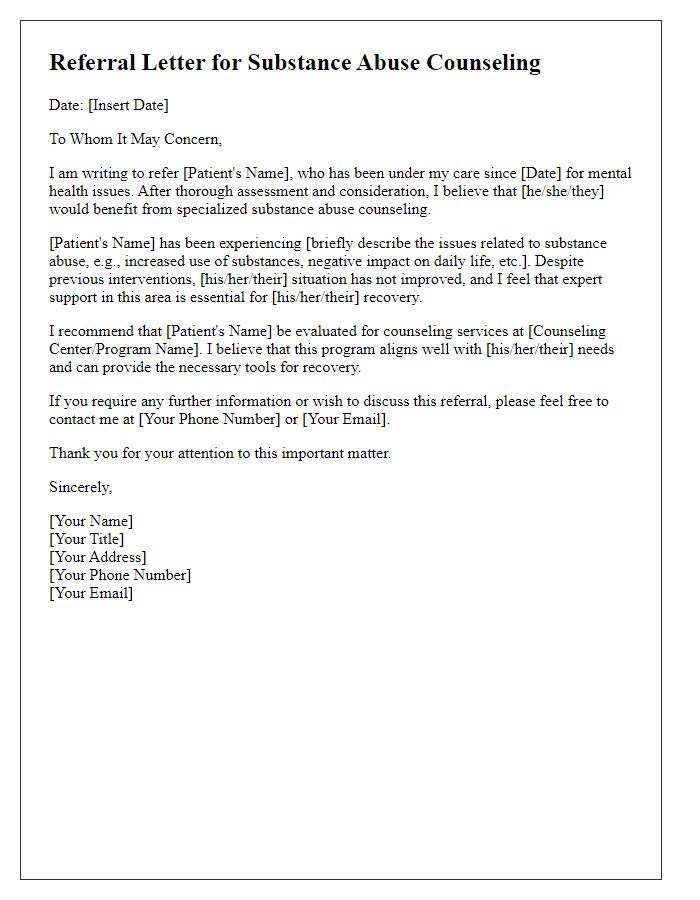
Letter template of mental health referral for personality disorder assessment
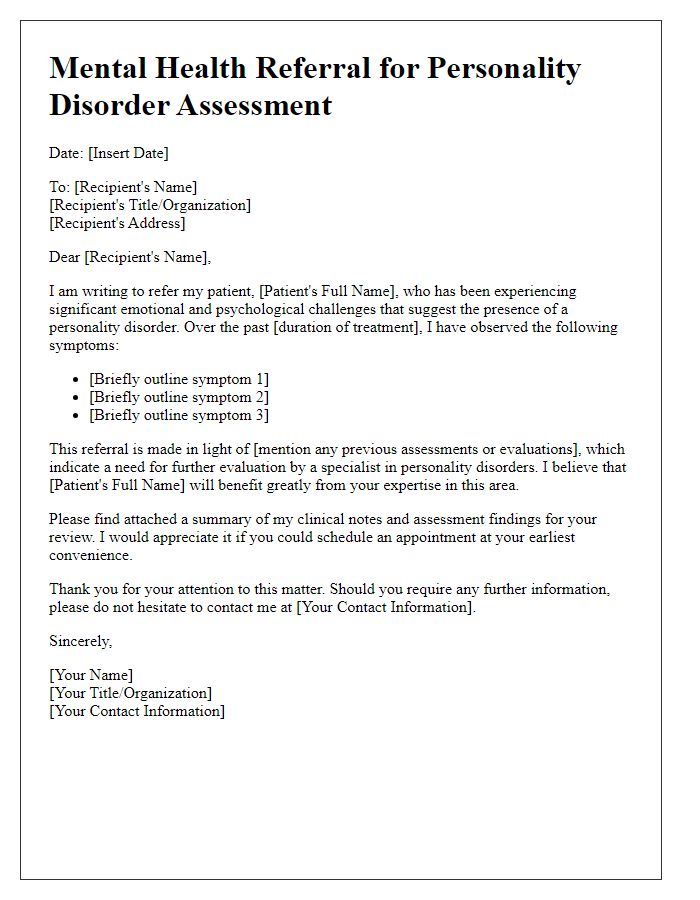
Letter template of mental health referral for children's psychological support
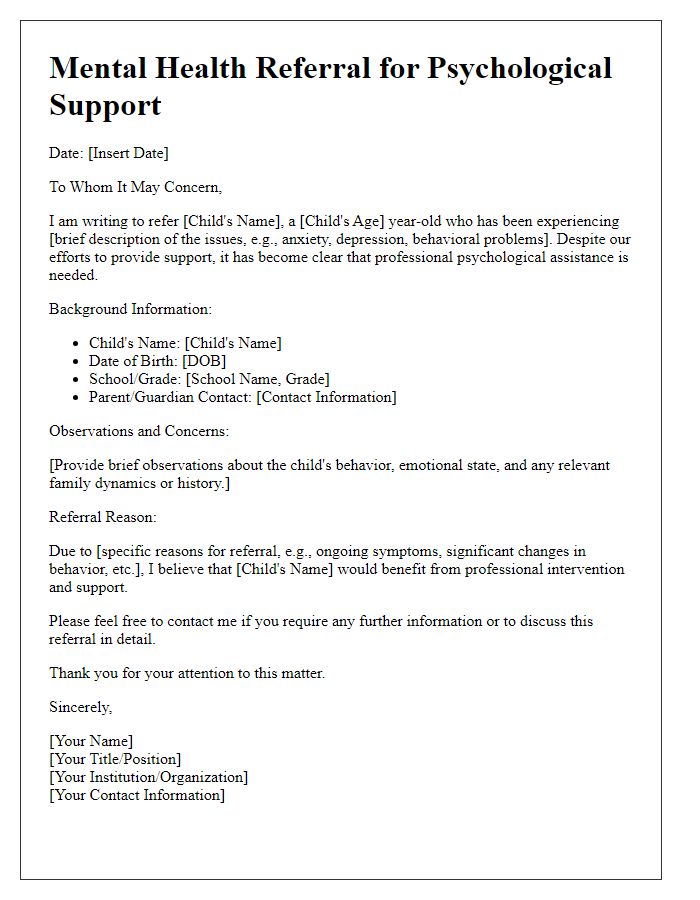
Letter template of mental health referral for geriatric mental health services
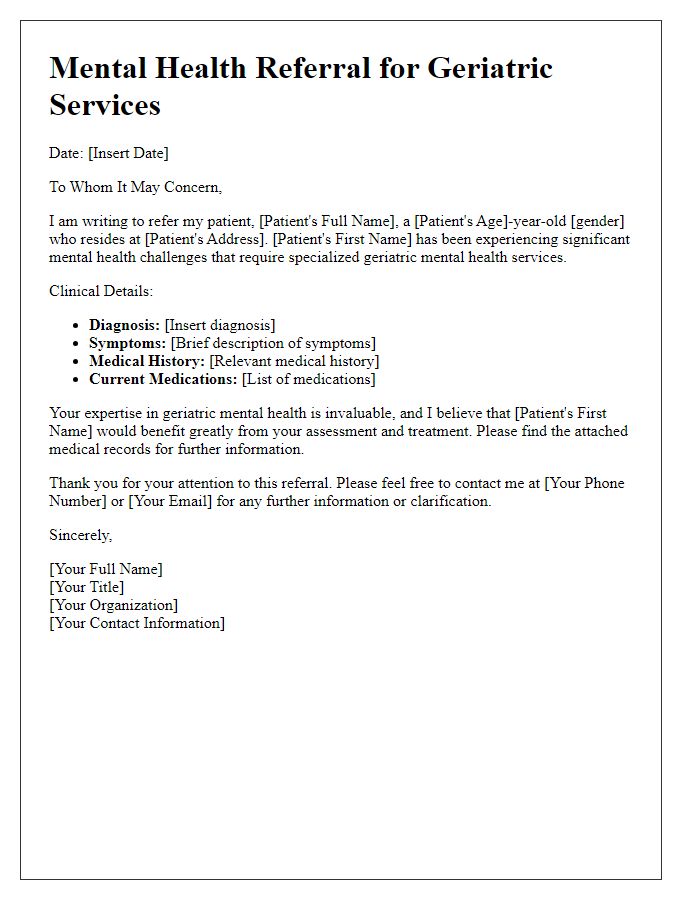

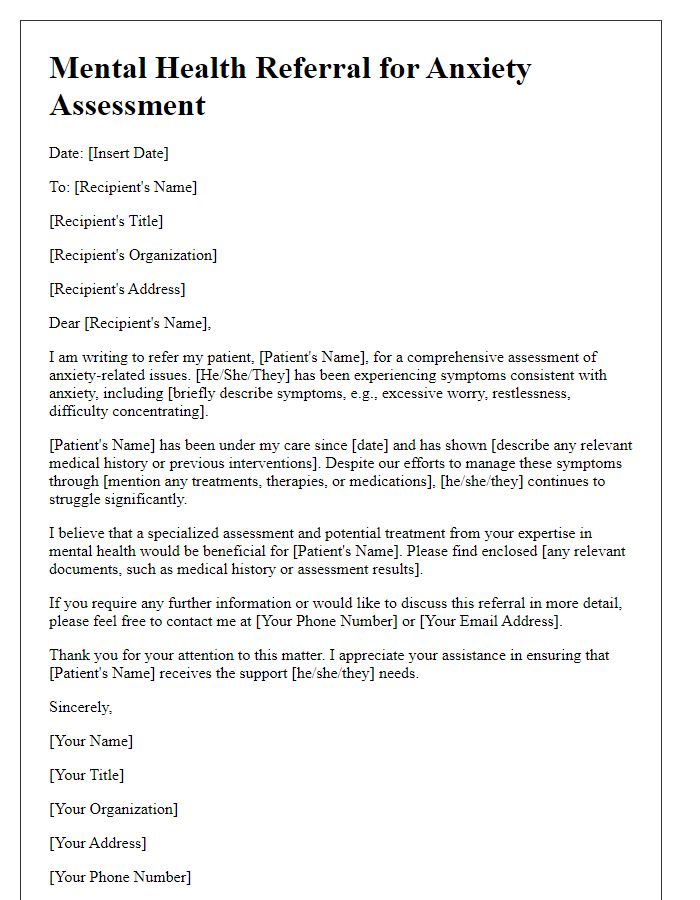
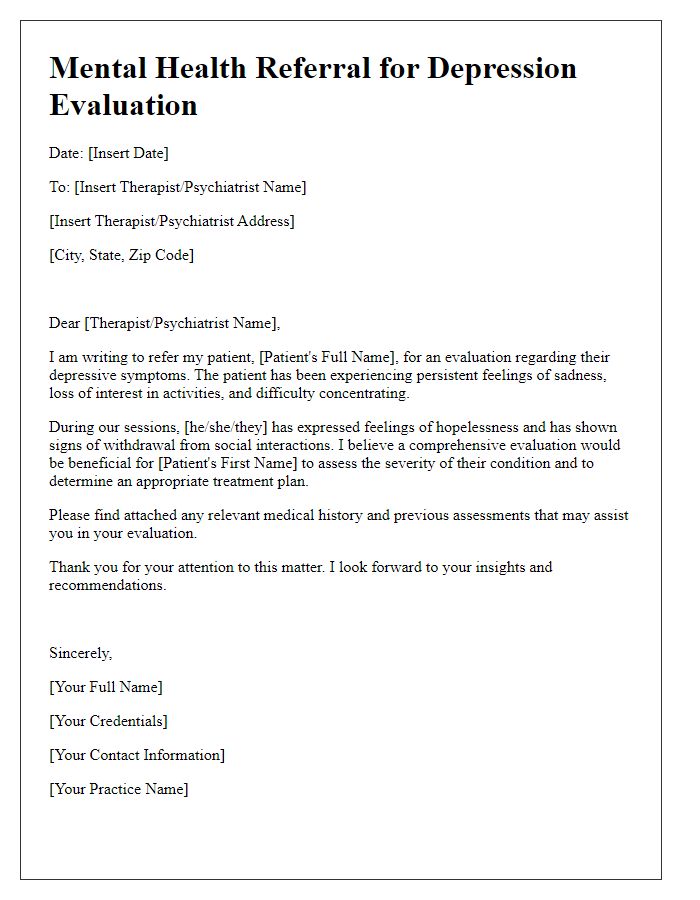
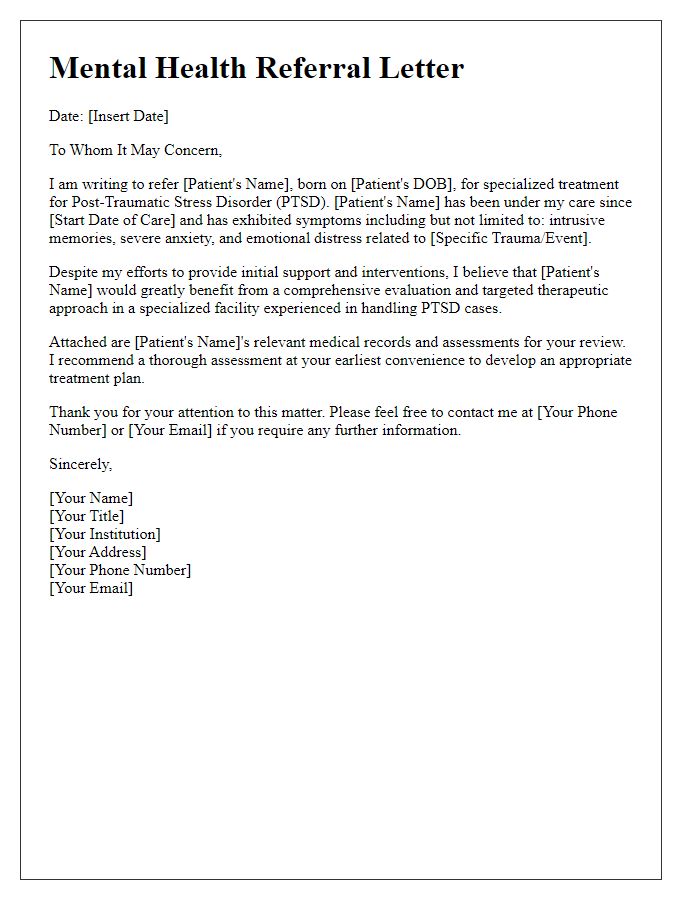
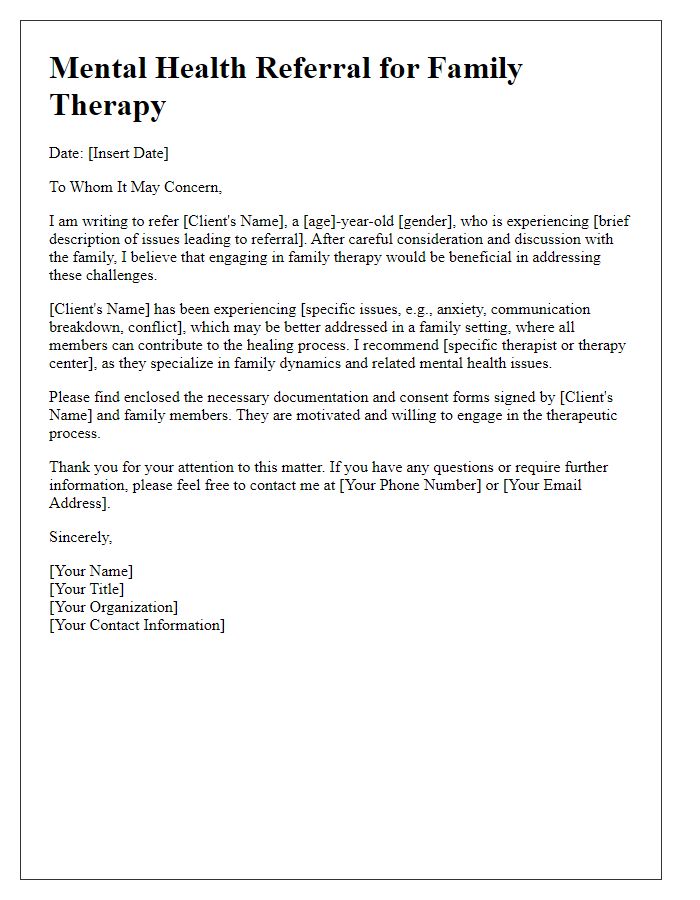
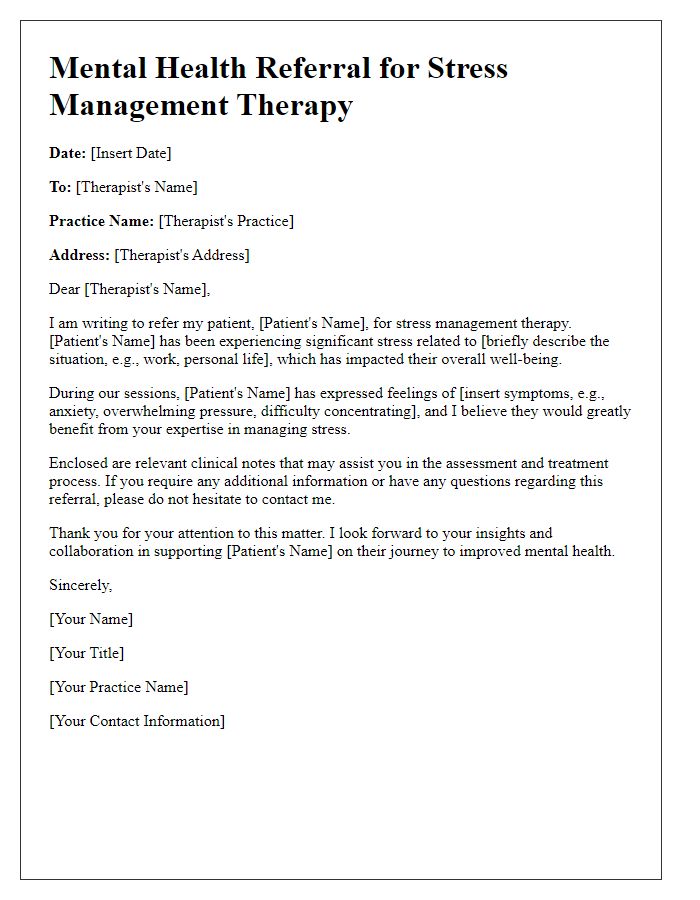
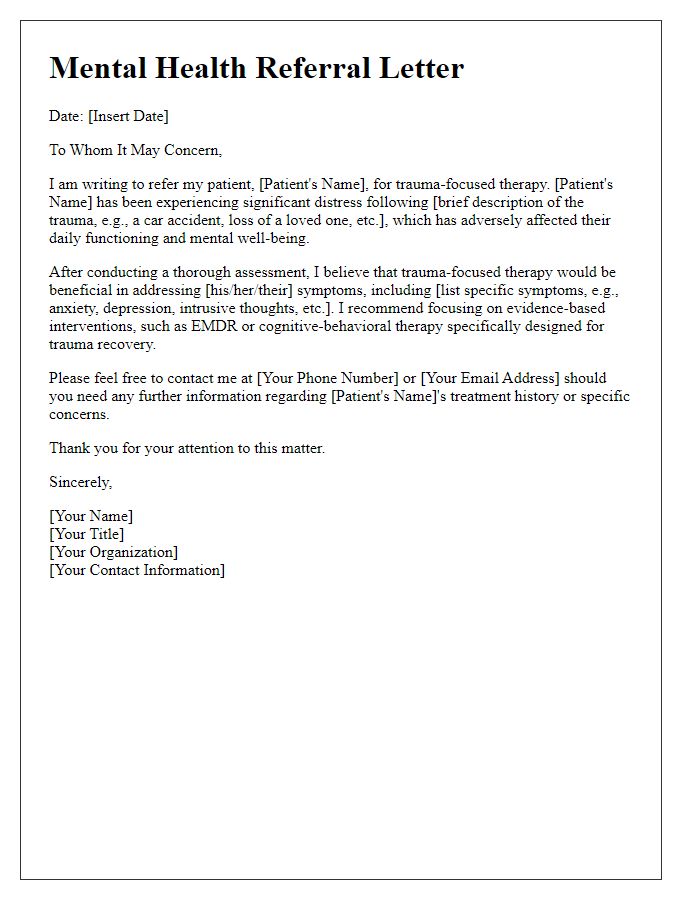


Comments